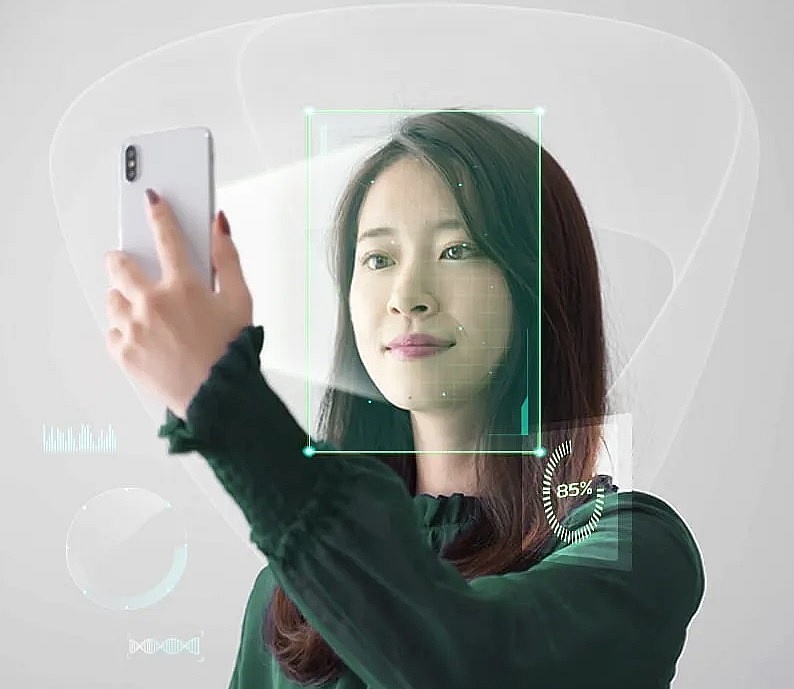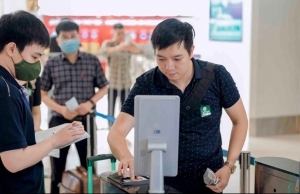Mandatory biometric verifications to be expanded
From January 1, all bank account holders in Vietnam are required to complete biometric authentication and update valid identification documents to avoid disruptions in payment transactions, as directed by the State Bank of Vietnam (SBV).
 |
| Mandatory biometric verifications to be expanded, Source: Vietcombank |
According to Deputy Governor Pham Tien Dung, banks continue to maintain all other security measures to ensure customer safety. “Cybercriminals are becoming increasingly sophisticated, so technology must continuously advance to better protect customer assets,” he said.
Dung also acknowledged the issue of regulatory evasion, where some fraudsters exploit corporate accounts to bypass biometric authentication. “In the future, the banking sector will focus more on the process of opening business accounts, ensuring the verification of legal representatives. For large corporate transactions, signatures will be required to identify the responsible party, enabling traceability when issues arise,” he added.
At a seminar on the topic hosted by the SBV at the end of November, Nguyen Thi Thu, deputy director of the Payment Department at the central bank, said the SBV had addressed issues in the payment sector, with 90 per cent of transactions now conducted via digital channels. This initiative was supported by early inter-agency collaboration programmes under the Ministry of Public Security (MoPS), aiming to verify account ownership.
“Despite highly positive results since the implementation of the new regulations, challenges remain, such as fraudsters shifting to the use of corporate accounts registered under fake or inactive businesses, which are difficult to control,” said Thu.
“As a response, the SBV plans to mandate biometric authentication for businesses, requiring financial institutions to verify legal representatives of companies before opening accounts. In addition, the SBV will continue to collaborate with units under the MoPS to strengthen inspection and supervision within the banking system,” she added.
Nguyen Huu Cuong, representative of the Department of Cybersecurity and High-Tech Crime Prevention under the MoPS, emphasised the importance of collaboration both across sectors and within the banking industry.
“When money flows are effectively controlled, a large proportion of fraudulent activities can be eliminated, as this disrupts their financial networks,” he said. “The SBV and the MoPS have consistently worked together, issuing policies aimed at effectively preventing digital fraud. These have proven essential in combating high-tech crimes in the banking sector.”
However, he acknowledged that crime prevention was a long and challenging process, compounded by uneven public awareness. “High-tech crimes involving digital fraud and asset theft are a global issue, not confined to Vietnam. Rapidly evolving methods and tactics continue to pose significant challenges,” said Cuong.
Strengthening financial security and combating fraud has become a top priority for Vietnam’s banking sector. Nguyen Thi Phuong Thuy, director of Operational Risk Management at TPBank, highlighted the critical role of financial institutions in safeguarding customers against the risks of fraud and financial loss.
“Relying solely on biometric tech without maintaining basic security measures such as password and OTP protection is not enough. Customers often trust that biometric tech fully secures their accounts, yet neglecting simple safeguards like password or OTP protection creates significant vulnerabilities,” said Thuy.
Furthermore, she urged authorities to review and update information on inactive or bogus businesses on national information portals. Increased transparency in this area could reduce opportunities for fraudulent activities.
“Regular and public updates on inactive businesses are essential. This transparency not only minimises risks but also enhances system security. I recommend establishing an official coordination process among financial institutions to address accounts or transactions suspected of being linked to fraud. Such a system would ensure swift, consistent, and unified support for affected customers,” she added.
Before applying biometrics to businesses, banks are promoting the completion of biometrics for all individual customers before January 1. To encourage customers to update their biometric data, banks are offering attractive incentives. Until December 29, BIDV is offering a gift worth over $5 to customers who complete biometric updates. This offer applies to the first 10,000 customers who update their biometric data each week.
After nearly six months of operation, the latest data shows that MBBank has identified over 4,200 suspicious accounts. Customers receive a warning when transferring money to an account suspected of being fraudulent.
“The fraud detection and warning feature is the result of a collaboration between MBBank and the MoPS’ Cybersecurity and High-Tech Crime Prevention Department, which updates the list of all accounts involved in or linked to fraudulent activities nationwide. Before each customer transfer, the bank quickly checks whether the account is on the suspicious list,” said a representative from MBBank.
At MSB, after customers update their chip ID card and participate in the highest-yielding online deposit product or make partial withdrawals of amounts not exceeding $210 on MSB MBank, they will receive an interest rate 1 per cent higher than the posted rate at the counter for deposits for six months or more.
 | Biometric authentication continues to be applied for air passengers The Civil Aviation Authority of Vietnam (CAAV) on December 25 issued a written report to the Ministry of Transport asking for its approval of the Airports Corporation of Vietnam (ACV)’s proposal to continue applying biometric authentication for air passengers. |
 | Lenders stress importance of biometric measures The Vietnamese banking sector’s implementation of biometric verification for transactions has significantly enhanced payment safety and fraud prevention, despite initial technical challenges and substantial resource requirements. |
What the stars mean:
★ Poor ★ ★ Promising ★★★ Good ★★★★ Very good ★★★★★ Exceptional
Related Contents
Latest News
More News
- Raised ties reaffirm strategic trust (February 20, 2026 | 14:06)
- Sustained growth can translate into income gains (February 19, 2026 | 18:55)
- The vision to maintain a stable monetary policy (February 19, 2026 | 08:50)
- Banking sector faces data governance hurdles in AI transition (February 19, 2026 | 08:00)
- AI leading to shift in banking roles (February 18, 2026 | 19:54)
- Digital banking enters season of transformation (February 16, 2026 | 09:00)
- IFC to grant $150 million loan package for VPBank (February 13, 2026 | 09:00)
- Nam A Bank forms position as strategic member at VIFC through three key partnerships (February 12, 2026 | 16:39)
- Banks bolster risk buffers to safeguard asset quality amid credit expansion (February 12, 2026 | 11:00)
- VNPAY and NAPAS deepen cooperation on digital payments (February 11, 2026 | 18:21)

 Tag:
Tag:



















 Mobile Version
Mobile Version